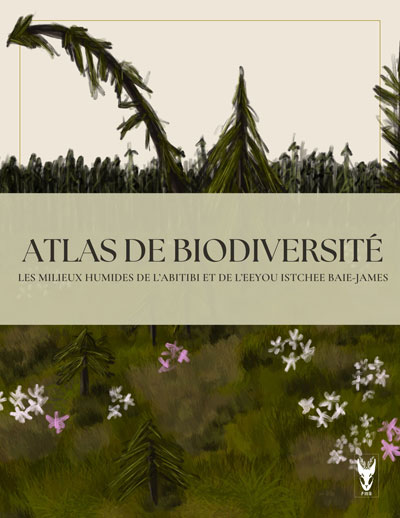
Mahedi Hasan Limon
Master's Student
Université du Québec en Abitibi-Témiscamingue
Effects of Paludification on Tree Productivity over the Canadian Clay Belt Region
Directeur: Osvaldo Valeria
Codirecteur: Valentina Buttò, David Paré
CURRENT RESEARCH PRJOECT
Canadian boreal forests offer numerous ecological benefits, including serving as a significant source of timber. Hence, it is imperative to maintain or enhance the ecosystem's productivity to facilitate sustainable management. Maintaining or enhancing productivity in parts of the boreal forest can be challenging, particularly in regions prone to paludification—a process where peat accumulates over previously dry mineral soil, leading to waterlogged conditions and reduced tree productivity. This phenomenon is especially relevant in the Clay Belt region of Quebec, where much of the forest (approximately 10%) grows on organic deposits in peatlands susceptible to paludification. Paludification occurs due to the combined effects of topography, and biotic influences, including vegetation type. This process contributes to a decline in overall forest productivity. Despite the importance of this dynamic, gaps remain in our understanding of the elements that contribute to these dynamics, which hinders our ability to predict their effects on forest productivity. This research project aims to better understand how various topographic factors (slope, elevation and drainage) and biotic factors (type of vegetation cover) influences organic layer thickness (OLT) formation and how these factors overall affect species-specific productivity in the northwestern Quebec Clay Belt, covering two distinct bioclimatic domains: the spruce-moss and balsam fir-white birch forests. Forest inventory data from the Quebec provincial government, OLT data from field plots (Mansuy et al., 2018), and remote sensing-derived abiotic variables will be used to assess how these factors influence productivity. The random forest (RF) algorithm will be used to make predictions of a response variable (productivity) based on complex (interacting, non-linear) relationships of explanatory variables. The study will also employ generalized additive models, to analyze productivity of the dominant species across two forest bioclimatic domains. Thus, it will help forest managers adopt tailored forest management practices by considering the importance of topographic variables and to consider the unique ecological needs and resilience of different dominant forest species, which will
ACADEMICS
- Master's Degree in Ecology and Management of Forest Ecosystems. University of Quebec in Abitibi-Témiscamingue (UQAT), Rouyn-Noranda, QC, Canada (2023 - to date).
- Master's Degree in Forestry. Shahjalal University of Science and Technology (SUST), Sylhet-3114, Bangladesh (2021).
- Bachelor's Degree in Forestry. Shahjalal University of Science and Technology (SUST), Sylhet-3114, Bangladesh (2018).
PROFESSIONAL EXPERIENCE
- REFORESTATION OFFICER. CARE BANGLADESH, Bangladesh (Dec 2021-Mar 2022) & (May 2022- Jan 2023).
INTERNSHIP
- Cree First Nation of Waswanipi. Rouyn-Noranda-Waswanipi, Canada.
- (CNRS) CENTER FOR NATURAL RESOURCE STUDIES. Sunamganj, Bangladesh.
VOLUNTEER & EXTRACURRICULAR INVOLVEMENT
- Management Committee Member, 26th AFD Chair conference . Hotel Forestel, Val-d'Or, Quebec (2024-11-20).
- Assistant Organizing Secretary at Green Explore Society. Shahjalal University of Science and Technology, Sylhet, Bangladesh (01-04-2015 – 31-12-2016).
MEMBERSHIP
- L’Institut de recherche sur les forêts (IRF) de l’UQAT.
- Centre d'étude de la forêt (CEF).
- Chaire en amenagement forestier durable (ChaireAFD).
POSTER PRESENTATIONS
- Effects of paludification on tree productivity in the Canadian clay belt region. Mahedi Hasan Limon, Osvaldo Valeria, Valentina Buttò. 17th annual CEF conference, Université du Québec en Outaouais [May 2024].
CONFERENCES AND SEMINARS
- ArcGIS pro for dummies, Center for Forest Research (CEF), Quebec, 23rd - 24th January, 2024
- Training on SW Maps for Spatial Data Collection and Fundamentals of QGIS. International Organization for Migration (IOM), Cox's Bazar, Bangladesh (18-01-2022).
- Plantation Technique and Management. Food and Agriculture Organization of the United Nations (FAO),Cox's Bazar, Bangladesh (30-05-2022).
HONOURS AND AWARDS
- National Science & Technology Fellowship (NST). Ministry of Science and Technology, Bangladesh (2021).
PUBLICATIONS
- Limon, M. H., Ara, S. H., & Kibria, M. G. (2021). Factors Influencing the Natural Forest Regeneration at Khadimnagar National Park, Bangladesh
 . Borneo Journal of Resource Science and Technology, 11(1), 73–83.
. Borneo Journal of Resource Science and Technology, 11(1), 73–83.
- Ara, S. H., Limon, M. H., & Kibria, M. G. (2021).Distributional pattern of tree species in response to soil variables in a semi natural tropical forest of Bangladesh
 . Journal of Forest and Environmental Science, 37(1), 14–24.
. Journal of Forest and Environmental Science, 37(1), 14–24.










